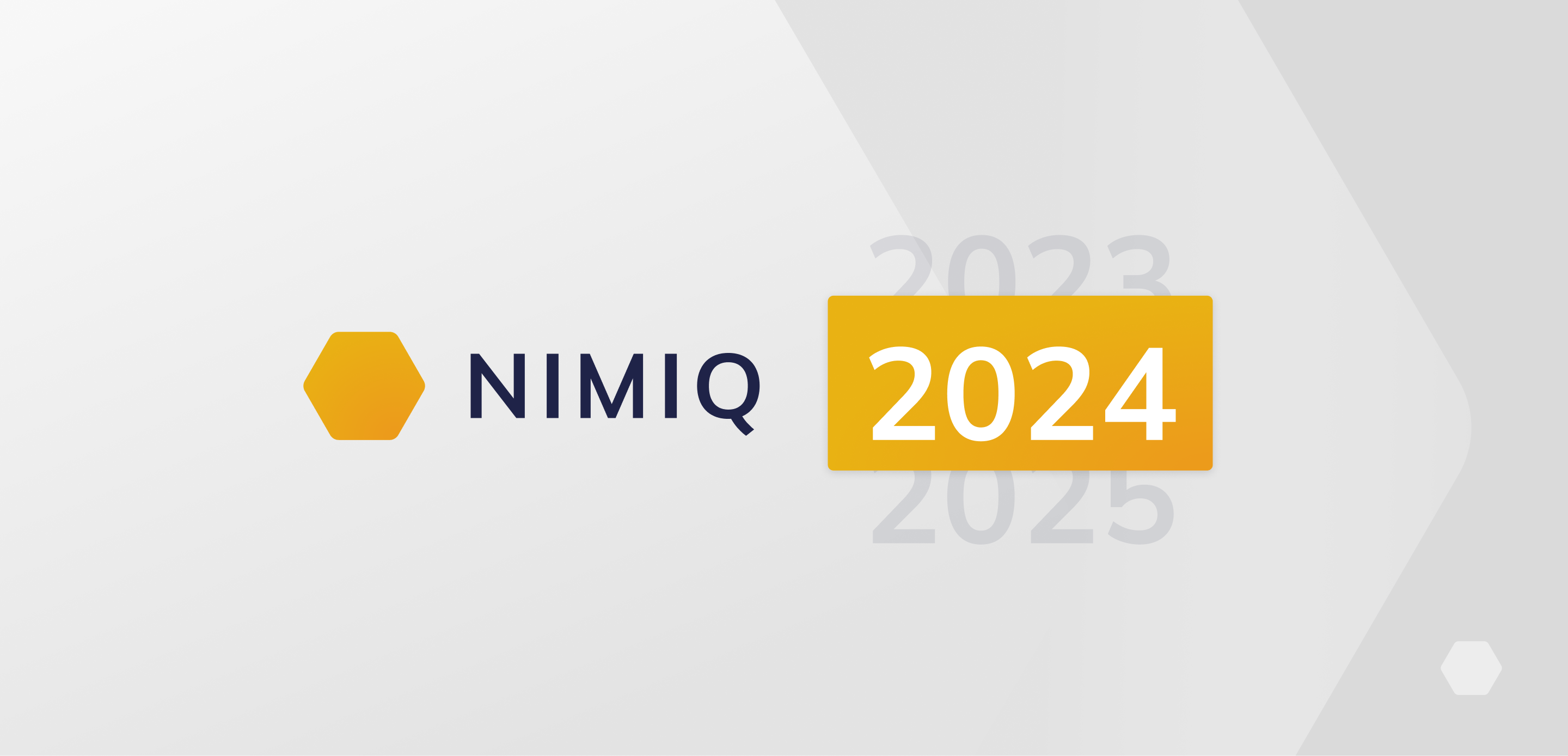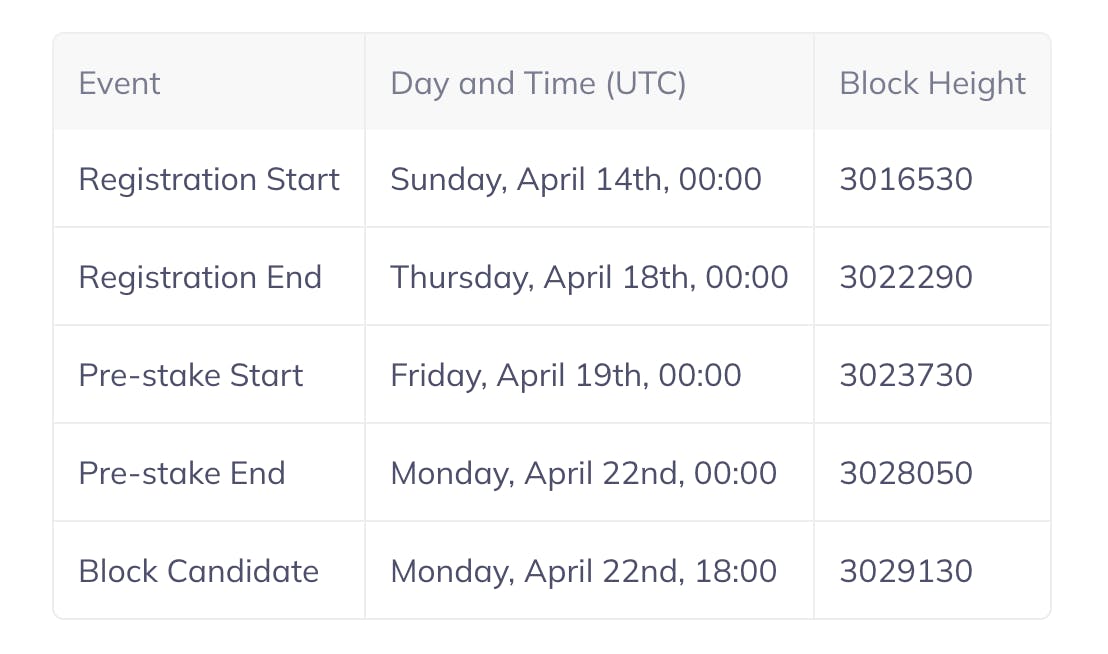Happy Birthday Nimiq - Welcome Nimiq Proof-of-Stake!
As we gear up to celebrate the anniversary of the Nimiq Blockchain, we are also excited to prepare for the migration to Proof-of-Stake. This blog post details the latest security audits, and how users can participate in the complete test of the migration to Proof-of-Stake.
12 Apr
by
3 min

Celebrating Six Years of the Nimiq Blockchain
The Nimiq Blockchain is nearing its sixth anniversary, continuing its legacy of reliable and community-powered transactions. The upcoming year is set to be transformative with the upgrade to Proof-of-Stake. This significant shift has been in the pipeline for years and is designed to dramatically reduce energy consumption while boosting the speed and performance of the blockchain—factors that contribute to a seamless payment experience.
Advancing to Proof-of-Stake
The Nimiq Proof-of-Stake protocol has advanced to a level of maturity that is now ready for extensive and rigorous testing. This is a significant moment for the Nimiq community and team alike as we embark on a series of planned phases to evaluate and refine the migration process. These tests are crucial—they allow our developers to collect valuable data, identify any potential issues, and ensure that everything functions as expected. The active participation of the community in this testing phase is vital, as it not only aids in optimizing the protocol but also strengthens the network by ensuring a seamless and robust migration for all users.
1. Public Bug Bounty with HackerOne
HackerOne will conduct a public bug bounty program for the entire Nimiq Proof-of-Stake codebase. This initiative follows a private security audit and aims to engage the community in helping identify vulnerabilities, ensuring a robust and secure migration.
2. Community Test of the Migration Process
This hands-on test will allow community members to actively participate and experience the migration process firsthand. Scheduled to start on Nimiq’s anniversary, this test is a critical step towards our transition. It’s important to highlight that this test run is exclusive to the community and holds significant importance. It allows our developers to gather data and analyze the migration process from start to finish to ensure its smooth execution.
Test of the Migration to Proof-of-Stake
As we prepare for the full transition from Testnet Proof-of-Work to Proof-of-Stake, we invite our community to participate in this critical testing phase. Depending on your interest and technical expertise, you can join as either a Staker or as a Validator.
General Schedule

Here’s how you can get involved:
For Stakers
Stakers contribute to the network by locking their tokens to support network operations and security. If you're interested in participating as a Staker, simply follow these steps:
- Access the Testnet Wallet.
- Prepare for Pre-Staking: Keep an eye on announcements towards the end of next week when we begin the Pre-Staking phase. During this phase, you can deposit your testNIM and start earning staking rewards.
For Validators
Validators play a critical role in the network by processing transactions and creating new blocks. If you are looking to engage more deeply in the migration process and have the necessary technical skills, consider registering as a Validator.
- Review the Documentation: Detailed instructions and requirements for registering as a Validator are available in our Migration Guide. Make sure to go through the guide thoroughly to understand the Validator registration process and responsibilities.
- Register: During the specified registration period from April 14 to April 17, use the command line tools described in the documentation to complete your registration.
By participating as either a Staker or a Validator, you'll play a vital role in testing and securing the Proof-of-Stake migration process. This is not just a test—it's a community effort to pave the way for a sustainable and efficient blockchain infrastructure. We appreciate your active participation and look forward to a smooth and successful migration.
Looking Ahead
These developments mark a monumental leap toward the migration to Proof-of-Stake. We thank our community for their unwavering support and enthusiasm.
Stay tuned to our social channels for upcoming details on the bug bounty program and more updates.
Go Nimiq!
Disclaimer
None of the statements must be viewed as an endorsement or recommendation for Nimiq, any cryptocurrency, or investment product. Neither the information, nor any opinion contained herein constitutes a solicitation or offer by the creators or participants to buy or sell any securities or other financial instruments or provide any investment advice or service. All statements contained in statements made in Nimiq’s web pages, blogs, social media, press releases, or in any place accessible by the public, and oral statements that may be made by Nimiq or project associates that are not statements of historical fact, constitute “forward-looking statements”. These forward-looking statements involve known and unknown risks, uncertainties, and other factors that may cause the actual future results, performance, or achievements to be materially different from any future results, performance, or achievements expected, expressed, or implied by such forward-looking statements.